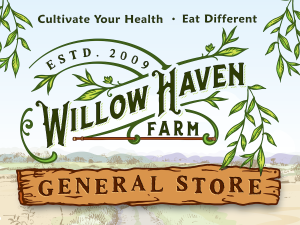It’s easy to feel disconnected from the fresh, nourishing foods of summer as the days grow shorter and the temperatures dip in the Lehigh Valley. But winter farm to table eating isn’t impossible. Instead of being a time of scarcity, winter on the farm is a time of rest and renewal—both for the land and for our bodies.
When we eat seasonal, local foods and align with nature’s rhythms, we not only support our health but also embrace the sustainability of farm-to-table eating.
For many of us, especially those looking to provide nourishing meals for our families, winter in Pennsylvania can feel like a tricky season.
You’re juggling family life, work, and the challenges of keeping everyone healthy.
But did you know that by choosing winter vegetables like kale, sweet potatoes, and winter squash, you can save time, eat better, and even support your local community?
On our farm in New Tripoli, we’ve seen how these vegetables not only thrive during the colder months but also offer the perfect nourishment for this slower season, making it easier to create healthy, hearty meals for your family.
Winter Vegetables Key Ingredients for Healthy Meals in Lehigh Valley
You might think that winter means fewer options here, but there’s actually an abundance of seasonal vegetables that are perfect for this time of year.
As farmers, we’ve witnessed how the cold air and even the frost make certain crops sweeter and more nutrient-dense. Hardy greens like kale, arugula, and Swiss chard are still growing strong, even on these colder days. Need recipes to inspire you to plan your menu around these vegetables?
The Power of Frost-Kissed Greens for Winter Nutrition
Have you noticed how sweet the crunchy Bok Choy stems are recently?
We sautéed them last night with the leaves, garlic, and onion in a little pork lard for a delicious side that is rich in phytonutrients and antioxidants.
When frost hits, these greens convert starches into natural sugars to help them survive, sort of like “anti-freeze.”
Not only does this make them taste sweeter, but it boosts their antioxidant content, giving your body exactly what it needs to fight off seasonal illness and keep your energy levels up. In fact, the transformation of these greens under cold stress highlights how nature’s changes can directly enhance their nutritional value.

Winter Squash and Sweet Potatoes: Immunity-Boosting Vegetables for Winter Meals
But it’s not just greens that thrive in winter.
Winter squash varieties like butternut, acorn, and kabocha, along with sweet potatoes, are also key foods in the seasonal vegetable lineup.
These hearty vegetables, packed with beta-carotene (a precursor to vitamin A), help support your immune system by maintaining healthy skin and mucous membranes—your body’s first line of defense against bacteria and viruses.
The Antioxidant Power of Winter Vegetables: Winter Squash, Sweet Potatoes, and More
Bright orange vegetables, much like frost-kissed greens, provide vital nutrients that help your body stay strong and resilient.
The antioxidants in winter squash, carrots and sweet potatoes reduce inflammation and repair cells, while their natural sweetness makes them a comforting addition to any meal.
Eating these in-season organic foods during winter not only nourishes your body but helps maintain hydration during the cold, dry months—when both your skin and respiratory system need extra care.
Traditional Wisdom for Seasonal Eating: Aligning with Nature’s Winter Rhythms
As we embrace the winter season, we can draw from the practical wisdom of Chinese medicine, which teaches us to align our eating habits with nature’s rhythms.
Winter invites us to slow down and nourish our bodies with warming, cooked foods that support our vitality and conserve energy. Root vegetables, winter squashes, and hearty greens like kale provide the nutrients we need to stay strong during these colder months.
Chinese medicine also emphasizes the importance of supporting our kidneys—our body’s center of energy and resilience—with foods like black beans, walnuts, and warming spices such as cinnamon and ginger.
Slow-cooked meals like stews and roasts help us maintain warmth, while warm drinks like ginger tea and bone broth keep us hydrated without cooling our bodies.
Ginger Tea can also be used for healing a fever. Find the recipe for “sweat it out” tea and more surprising ways to use ginger here.
I naturally seem to simplify my meals this time of year. One pot meals, soups and stews are frequently on the menu and don’t take as much time and energy.
What about you?
By embracing these seasonal foods and practices, we can strengthen our immune system and stay balanced, all while staying connected to the natural cycles of our local environment.
Farm-to-Table Eating: A Solution for Busy Lehigh Valley Families
As a mom and farm wife, I know how overwhelming it can be to prepare meals that are both healthy and simple, especially during the winter. With the demands of family, work, and everything in between, it can feel like a challenge to get a nourishing meal on the table.
But that’s where farm-to-table eating comes in. By choosing local, seasonal vegetables and proteins—like the ones we grow on our farm—you can make meal planning easier, save time at the grocery store, and offer your family meals that are not only delicious but packed with nutrients.
Winter is the perfect time for slow-cooked meals like stews, soups, and braises. These meals are easy to prepare, highly nutritious, and perfect for warming up your body on cold days. Plus, they make use of the winter vegetables that are in season, like winter squash, root vegetables, and hearty greens.
Recipes: If you need recipes to inspire you to plan your menu around these vegetables, we’ve got you covered. Check out the winter super salads in this post or the winter squash recipes here.
Supporting Local Farms: The Environmental Benefits of Seasonal Eating
By embracing farm-to-table eating, you’re not just feeding your family—you’re also supporting local farmers and sustainable practices. Eating seasonally helps reduce the negative environmental impact of your food, ensuring that your meals are not only healthy for you but also for the land and soil.

Winter is a time when the land rests, allowing the soil to replenish itself, storing nutrients that will nourish the crops in the coming seasons. By choosing to eat foods grown in harmony with this season, you help sustain the land’s natural fertility, promoting a cycle of growth that benefits both your health and the environment. Supporting local farms means investing in the resilience of our food system and creating a lasting, positive impact on the community.
Nourishing Ourselves and our Local Farm Land in Winter
Winter is often seen as a time of rest, but let’s pause to consider what is actually happening in nature during this season. Many plants have completed their life cycle and are now decomposing into the soil, contributing valuable organic matter. Though it may seem like the land is dormant, the soil is teeming with life and energy. Microorganisms, worms, and fungi work tirelessly to break down the decaying plant matter, turning it into rich nutrients that will feed the crops of the coming seasons. The life beneath the surface is vibrant and ever-moving, supporting a cycle of renewal.
Trees in Hibernation: The Roots Are Where the Action Is in Winter
While it may seem like trees are inactive during the winter months, all the action is happening at their roots. The trees themselves are in a kind of hibernation, but beneath the surface, there is preparation for the spring. Sap is being produced and, soon, it will flow through the trees, signaling the rebirth of new growth.
Winter Garlic: Building Strength for Spring
In the same way, the garlic we planted last month is using this time to build a strong root system. It draws nourishment from the soil, preparing to grow quickly once spring arrives and the nutrients are abundant.
Learning from Nature: Embracing Winter Rest and Preparation for Health
So, what can we learn from nature during this restful season?
While the outward world may appear still, life and energy are actively at work beneath the surface. The land is not idle; beneath the frost, the soil experiences a deep, renewing transformation.
This natural rhythm teaches us that rest is not about being inactive—it’s a time for replenishment and restoration.
Your body follows this same cycle.
By nourishing your immune system with easy-to-digest foods, you allow yourself the time to rest, heal, and cleanse deeply. It’s a chance to restore your energy and store up the vitality you’ll need for the busyness of spring.
I suggest you give yourself permission to rest, de-stress, detox, and conserve the energy your body will need for the coming seasons.
Nourishing Yourself with Farm to Table Eating in Lehigh Valley
Winter is a time of rest, renewal, and healing, but it’s also a time when our bodies need more than just comfort—they need nourishment that’s aligned with nature. With the days growing shorter and the cold settling in, it’s easy to reach for processed foods that offer temporary warmth but fail to fuel our health long-term.
But by choosing seasonal, local vegetables and embracing farm-to-table eating, you’re giving your family the gift of health and wellness while supporting sustainable agriculture—a choice that will protect your family’s vitality and the future of our land.
Don’t wait until the cold weather takes a toll on your immune system—make the nourishing, intentional choice to slow down, nourish your body, and reconnect with your food now.
Whether you’re savoring a slow-cooked stew made with winter squash or warming up with frost-kissed greens, your meals will not only satisfy your hunger but also fuel your body for the months ahead.
When you choose food grown in season, you’re taking control of your health, ensuring that you’re ready for whatever winter throws your way, while also building a balanced and sustainable lifestyle for your family and community.
Ready to nourish your family with local, seasonal goodness?
Visit us at the Willow Haven General Store, where you’ll find fresh, farm-to-table foods that will warm you from the inside out. Our store is open every Tuesday – Saturday
8150 Hamilton Blvd, Breinigsville, PA 18031
https://willowhavenfarmgeneralstore.com
Hours: Tues – Fri 7 am – 8 pm this week
Sat. 7 am – 4 pm

Free “Farmer Talks” on Farm to Table Topics
Don’t miss out on an exclusive opportunity to learn more about seasonal eating and sustainable farming join us tomorrow at 4 PM for Farmer Reuben’s talk at the General Store. He’ll be sharing valuable insights to help you connect even more with your food and the land that sustains us. Plus, stay tuned for a series of upcoming talks designed to deepen your understanding of farm-to-table living.

We can’t wait to see you there!
We support your desire to have a good, healthy way of life and organic farm food on your table that supports that goal.
We’ll keep farming for you!
Reuben and Tessa DeMaster
Willow Haven Farm

P.S. Check out our schedule of upcoming Farmer Talks so you can save the dates – Click Here


